Identity Of 14 Baluch Citizens Detained In Iran’s Sistan Province Revealed
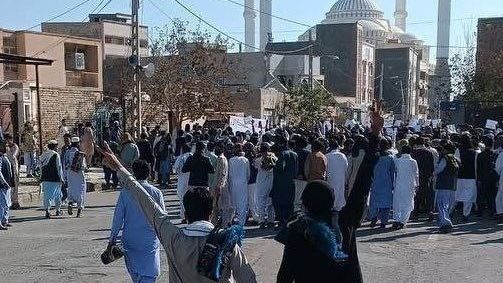
The identities of at least 14 Baluch citizens arrested by the Iranian security forces, including four children, have been revealed.

The identities of at least 14 Baluch citizens arrested by the Iranian security forces, including four children, have been revealed.
The arrests happened after anti-regime protests in the Sistan and Baluchestan province on June 23, including four young teens, Amir Alizahi, 13, Adnan Alizahi, 14, Iraj Hashemzahi 14, and Esfandiar Hashemzahi, 15.
Amir and Adnan Alizahi, cousins, were reportedly released on Friday evening after 10 hours of detention and torture by the security forces in the province which has become the heartland of anti-regime activity.
Haalvsh website, which covers the events in Sistan-Baluchestan province, reported that in the city of Rask alone, plainclothes agents forced four citizens, including two teenagers, into a car and abducted them.
"At least 50 people from a village, who had attended the Friday prayer, were arrested by the repressive forces on Friday," Haalvsh wrote of the unrest in Rask.
So far, no information has been published about the exact number of those arrested in different cities of the flashpoint province on Friday.
This Friday was the 38th consecutive week that people of the province held demonstrations against the government following the death in custody of Mahsa Amini in September, but the rallies were significantly larger following calls for protests by Sunni clerics and activist groups as the regime seems to have intensified its campaign against their religious leader Mowlavi Abdolhamid.
The prominent religious leader has been relentless in his condemnation of authorities in his weekly Friday sermons since September when nationwide protests erupted in the country.
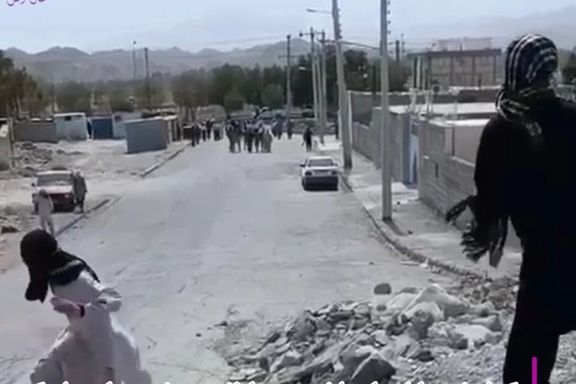
The people of Sistan-Baluchestan province from the Baluch Sunni minority in southeastern Iran held antiregime rallies on Friday with reports of sporadic clashes.
This Friday was the 38th consecutive week that people of the province held demonstrations against the government but the rallies were significantly larger following calls for protests by Sunni clerics and activist groups as the regime seems to have intensified its campaign against their religious leader Mowlavi Abdolhamid.
The prominent religious leader has been hammering the authorities in his weekly Friday sermons since September when nationwide protests erupted in the country.
People in the Sunni-majority cities of Iranshahr, Chabahar, Khash, Rask, Pishin, and Souran poured out into streets after Friday prayers, with videos showing residents hurling stones at the security forces in the neighborhoods of their towns.
According to the advocacy group Haalvsh, which reports on issues affecting the Baluch people in the predominantly Sunni province, security forces opened fire at the protesters who were chanting slogans in several of the cities.
The website also said that dozens of people have been arrested as the regime's plainclothes forces attacked the protesters and even raided their homes following the rallies.
Friday’s demonstrations were particularly large and fierce compared with previous weeks as reports emerged this week that the IRGC intelligence had assigned a hitman to poison and kill the vocal Sunni cleric of Zahedan.
Haalvsh reported on Monday that the security guards of Makki Mosque, in which Mowlavi Abdolhamid makes his sermons, arrested a man in the guise of a religious student who wanted to assassinate him.
Since September during ongoing protests following the death of 22-year-old Mahsa Amini in police custody, Mowlavi Abdolhamid has made fiery speeches against the heavy crackdown and killing of protesters, calling government actions "felony". He has also called for holding a referendum in Iran with the presence of international observers.
As usual the internet was shut down in Zahedan and several other cities in the region on June 23 but it did not stop people from showing up for the rallies or publishing footage from their protests and Abdolhamid’s sermons.
During his sermon this Friday, Abdolhamid slammed the regime over its suppression of those critical of the performance of the ruling power, even the officials and members of parliament.
Emphasizing that Iranians will never give up their demands for freedom and justice, the Sunni cleric said that the national interests of the people have been damaged by the decisions and actions of the "governments and officials of the country".
Highlighting that people from all walks of life are under pressure due to wrong decisions by regime officials, he said that he does not foresee a promising future for the country where challenges remain unresolved.

In order to improve the economy, capable people and efficient plans and mechanisms are needed, “and until these are not provided, the basic problems cannot be solved," he added.
Iran is struggling with a serious economic crisis partly due to US sanctions, but also because of its government-controlled system, lack of competition and widespread corruption.
In a tacit reference to the assassination attempt against him, Abdolhamid supported the legitimate political struggle to achieve freedom, justice and a healthy economy, saying that "We pursue the interests of the people and in this path, we accept any threat to our lives."
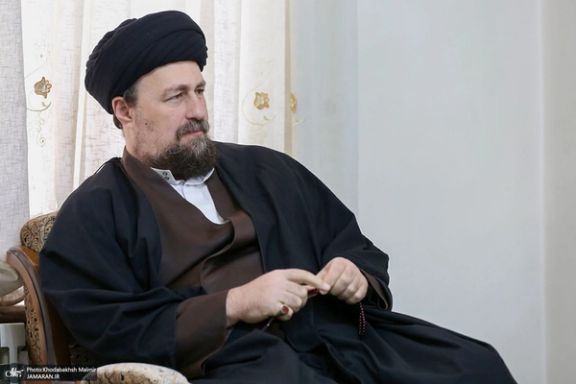
The grandson of the founder of the Islamic Republic Ruhollah Khomeini says European countries are now disappointed with the inability to topple of the regime.
“Those who seek to overthrow the Islamic Republic must be disappointed. Europeans behave differently when they see they cannot overthrow the Islamic Republic,” Hassan Khomeini claimed on Thursday.
Speaking at the mausoleum of his grandfather, Khomeini added that the decision of the judiciary chief and the proposal for the amnesty of prisoners last year was very helpful in “disappointing the enemies”.
Using the term “Enemies” is a favorite of Supreme Leader Ali Khamenei to refer to the United States, Israel, US allies in the region and in Europe.
“Anything that can be used to overcome internal conflicts… creates hope and guarantees the survival of the Islamic Republic.”
In February, Khamenei agreed to pardon some prisoners and reduce sentences for those arrested during anti-government protests in recent months.
In a letter judiciary chief Gholam-Hossein Mohseni Ejei sent to Khamenei young protesters were highlighted, with the caveat that they “were deceived by enemy propaganda,” and since then have expressed remorse.
However, human rights activists including Narges Mohammadi, slammed the Supreme Leader’s amnesty as a sham to feign compassion to the Western world.
In a letter written to the UN Human Rights Council in Geneva from inside Tehran’s notorious Evin Prison, she said the announcement reflects a “politics of the Islamic Republic [which] is based on lies”.
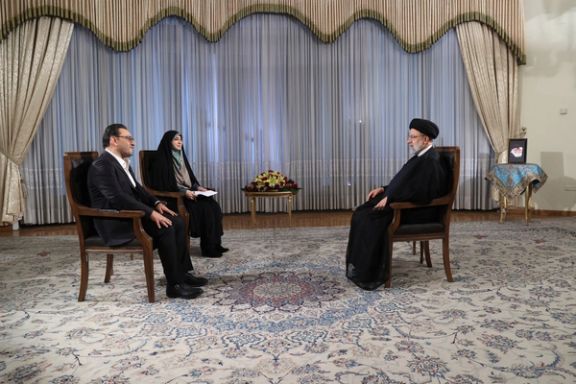
Enemies fomented protests in Iran to derail “progress” that his government was making, Iran’s president Ebrahim Raisi claimed in an interview with state television.
While sharp criticism about the deteriorating economy and “mismanagement” by Iran’s hardliner government has increased by both friends and foes, Raisi tried to present an acceptable picture of his performance by making claims and citing misleading or cherry-picked statistics.
The televised interview Tuesday evening was aired on the second anniversary of his win in the 2021 presidential vote that had none of the attributes of a competitive race. His most serious rivals were disqualified by the Guardian Council, a non-transparent body controlled by regime insiders loyal to Supreme Leader Ali Khamenei.
Raisi repeated the regime’s unsubstantiated claim, first made by Khamenei, that the nationwide ‘Women, Life Freedom’ movement was a conspiracy by enemies to derail the success of the regime.
“The esteemed leader of the revolution indeed correctly proclaimed that the basis of the riots was the fact that enemies felt the country was moving toward progress and hope was returning to the people,” Raisi said about Khamenei drawing the line and defining the cause of the protests.

Regime officials never use the word ‘protest’ when it is about Iran. All anti-government demonstrations are ‘riots’.
The head of the Revolutionary Guard intelligence organization, Mohammad Kazemi claimed this week that 20 foreign secret services were involved in planning and organizing the protests that began last September when a 22-year-old woman was killed in ‘hijab police’ custody.
Raisi even claimed that nuclear talks with the West came to a halt because of the protests, while these negotiations hit a snag in the end of August or early September 2022, weeks before the anti-government movement began and the extent of the violence against protesters was revealed.
The United States said many times in 2022 that the Islamic Republic had presented “extraneous” demandswhen the European Union mediators presented a compromise draft agreement in mid-2022.
The bloody government response to protests that eventually took more than 500 civilian lives did become part of the US reasons for not pursuing a return to the JCPOA nuclear deal, but the first signs from Washington emerged in October and had nothing to do with the initial impasse in negotiations.
Raisi also made a series of misleading statements on the economy, including a claim that inflation dropped during his presidency, while Tehran media in May reported an inflation rate close to 70 percent.
Worse of all what he ignored to mention was a devastating drop in the value of the currency, rial, since September 2022. The rial, which was trading at around 280,000 to the US dollar in mid-2022, dropped to as low as 550,000 in early May. It is now trading at around 490,000. In short, the rial’s value almost halved in less than a year, with an incalculable damaging impact on the inflation rate in the months to come.
But the president in his interview tried to blame the war in Ukraine, which did have an inflationary impact on global prices, but nowhere near 70-percent inflation.
Iranian observers are at a loss to explain extravagant and demonstrably false statements by officials. Is it ignorance of facts, rosy reporting by bureaucrats to senior politicians or an outright and deliberate attempt to justify their failures?
Raisi’s statements come against the backdrop of reports about direct and indirect talks with the United States to reach an unwritten deal so the Tehran can receive some badly needed foreign currency if Washington agrees to allow its frozen funds in Iraq and South Korea to be released.
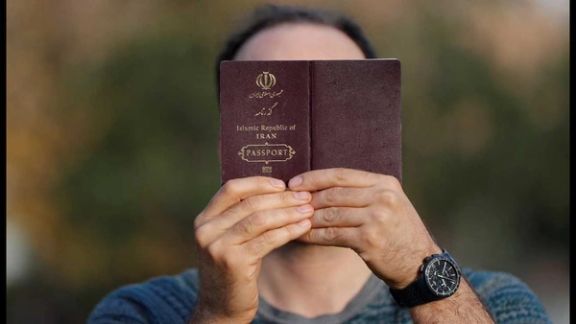
A senior adviser to former reformist President Mohammad Khatami says many Iranians see emigration as a way out of the looming collapse of the regime in Iran.
Mohammad Reza Tajik wrote his article in the reformist Etemad newspaper in a cryptic language filled with phrases from religious books in a way that would presumably save him from a punitive reaction by the government.
Tajik, an open-minded intellectual, became too cautious and evasive following his arrest and imprisonment after the disputed presidential election in 2009 that re-instated Mahmoud Ahmadinejad for a second term.
Tajik argued that the massive wave of emigration out of Iran is the people’s reaction to ongoing social and political chaos and the resulting despair that has overwhelmed the Iranian society. Multiple crises have brought the Islamic government to the brink of a downfall.
He quoted Iranian philosopher Javad Tabatabaei as saying that European visitors to Iran in the late 19th century and early 20th century attributed Iran's political collapse in that period to the wave of emigration out of the country.
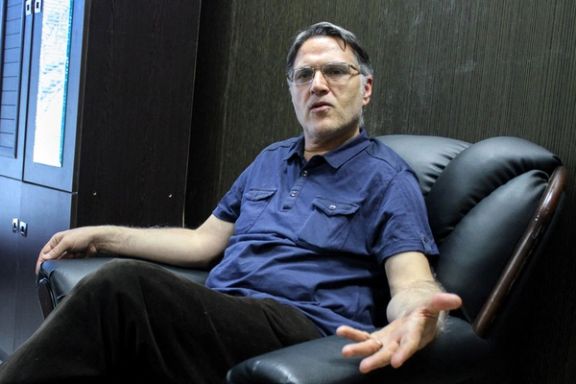
Both then and now, a majority of Iranians who leave the country for good are either well-educated experts who find the government too repressive and backward and prefer to move to developed countries, or wealthy Iranians who believe the country's long-standing and worsening political and economic crises will endanger their capital and investments in Iran.
This process drained Iran of its human and financial resources, Tabatabaei quoted European visitors as saying. At the same time, the migrations make the country's situation even worse, by decimating human capital and leaving very little if any motivation for the rest of the elite to stay in the country.
Tajik wrote in his article, that the only thing the government can do to stop this destructive trend is to surrender to essential changes that have been part of the demands by protesters and by politicians since last year, such as former President Hassan Rouhani. However, Iranian observers have said over and over that the regime finds it hard to undermine its authority and succumb to reform.
According to Tajik, recent opinion polls conducted in Iran show that an increasing number of the well-educated elites are considering emigrating as their last resort. He added that Iranians have been among the first five nations taking part in the US immigration lottery. As a result of the wave of migrations, Iran's population is expected to fall by 16 percent which could translate into a 27-percent decline in talented workforce and a 19-percent decline in the number of people in their 20s and 30s.
Other reports in Iran say the age of emigrants has dropped so much that even high school adolescents are among those who put pressure on their families to leave the country for good. Reports indicate that young Iranians are taking English classes more seriously than their other lessons, hoping to facilitate their relocation to countries such as Canada, which is currently the number one destination because of the relative ease in obtaining visas. Some reports say many of those who are considering emigration do not plan to return to Iran.
There have been many complaints in recent months about the emigration of medical staff from Iran. On the other hand there are many websites that offer guidance for doctors and nurses who wish to leave Iran.
Tajik noted that most of those who leave Iran wish to go to countries that the government has been branding as "enemies." This is a bitter irony, he said. It is also sad for Iranians who think they have wasted their money and other resources on training a workforce that is now going to leave the country for good.
This, in other words, marks a defeat for the Islamic Republic’s ideologically designed educational system. The outcome of the policies that have led the country to this stage is nothing but a defeat, about which Tajik wisely did not elaborate any further.

In response to the regime's crackdown on protesters, 18 Iranian officials have been banned from travelling to New Zealand.
New Zealand's Foreign Affairs Minister Nanaia Mahuta announced on Monday a third tranche of sanctions saying it was a message to Iran that the country would not tolerate denial of human rights and violent suppression of protests.
“Our first and second tranches of travel bans sent a message to Iran that Aotearoa New Zealand will not tolerate the denial of basic human rights and the violent suppression of protests in Iran, and this third tranche reiterates that same message,” Nanaia Mahuta said.
“Despite international pressure, the Iranian regime has continued that severe and excessive repression of peaceful demonstrators since Mahsa Amini’s death, including the unconscionable execution on the 19th of May of three people in connection with their role in the protests.”
This brings the total number of banned officials to 55, following earlier bans on 37 Iranians associated with the death of Mahsa Amini, a 22-year-old who died after being detained for wearing her hijab "improperly".
A further 11 officials and seven Iranian entities have also been banned from travelling to New Zealand for having manufactured and supplied drones to support the invasion of Ukraine by Russia.
"This is not the end of our efforts with Iran. Additional individuals and further measures remain under consideration given the Iranian state's ongoing egregious abuses of human rights," added Mahuta.